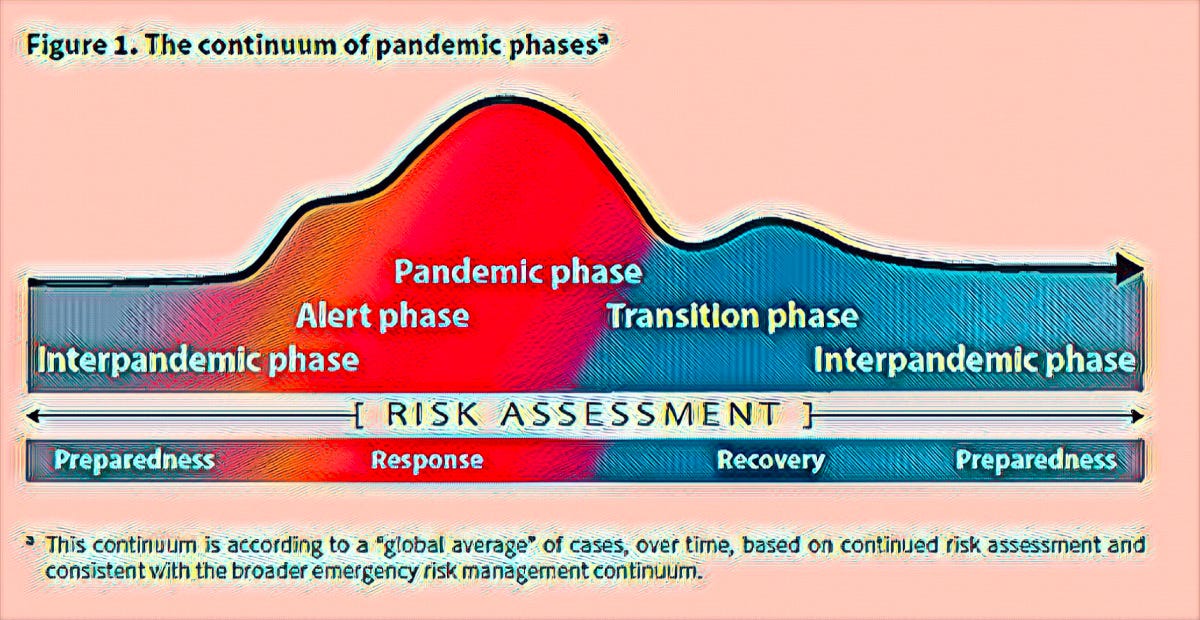“I do hope these will ultimately have a positive narrative through line,” Rachel Megan Barker told me when handing this in. “Maybe by the end of the year...” For now, though, she’s working her way through the latest phase of the pandemic, one in which responding to the crisis is no longer her job.
by Rachel Megan Barker
When the covid pandemic first began, I was, I realize now, in an unusual position in two ways.
Firstly, my job at the time (which was in citywide government) became almost entirely about COVID-19, for a long time. And secondly, by pure luck and coincidence, I didn’t really have any plans to get cancelled. I was planning to see one play (which I finally did get to see this January), and then there was an election which I was meant to be working on, which got pushed back a whole year (but hey, we got to do it in 2021 and we won, so that worked out), but beyond that I really just didn’t have anything on the calendar for March 2020 onwards. And, of course, once the pandemic happened, I wasn’t going to start making any plans.
Now, it is pretty self explanatory why not having any plans made that moment easier for me than it otherwise would have been - yes, the existential dread of not knowing what the future was going to hold and also just, you know, the realities of a global pandemic were still pretty awful - but at least I didn’t have that sense of “this is what my life would have been and now it’s slipped away.” My life was what it was; there was never another version of my life I felt like I’d lost because I hadn’t planned for it.
And while it may sound awful for “responding to the pandemic” to be your job - and yes, aspects of that were terrible - what that also meant was that the thing I was inevitably obsessing over was also the thing I was meant to obsess over. It wasn’t this constant buzzing at the back of my brain that it is now; it was supposed to be my focus. And that also meant I felt like I was doing something to try and respond to and do something about the thing that was negatively impacting everyone.
Today, the pandemic remains this force impacting everyone across the world (in many ways, of course, things are much better with vaccines and our ability to live more closely to how we did before, but at the same time, it’s far from gone away and remains both a present problem and something that means the future seems deeply uncertain) and responding to that reality is no longer part of my job. In many ways that is both harder and more boring.
Not knowing what to do or how to do it - literally not being able to dedicate the time to understanding the best course of action because that is no longer my job - means there is now just this nagging weight of it in my mind, without the form or substance or clarity or purpose that I had before. I feel bored with it, at least in large part, because I feel helpless in relation to it. And, frankly, because it no longer feels interesting; what is interesting is not always what is enjoyable - but at least it is interesting. When it was something that I could really focus on and work on, it was interesting; when it is a nagging problem that I cannot stop thinking about but also don’t have time or space to truly focus on, then it’s boring.
And on top of this, this time round I have plans - so when omicron first hit, I was there looking at my calendar like “please! Don’t ruin them! My precious plans!”, as, I only now really realize, everyone else was doing in March of 2020.
But what I really realized during February is that it has to be about more than that.
It has to be about more than doing things to get that dopamine hit. It has to have a sense of narrative and purpose - and maybe, then, it’d be less boring. Because otherwise you feel helpless.
As I write this, I have no idea what to do about that, psychologically. If the pandemic is causing me this existential boredom, and thinking about and responding to the pandemic is no longer my job, then what else can I feel but helpless?
Rachel Megan Barker is a highly caffeinated feminist, wanderer, bookworm, and organizer. Follow her on Instagram at @rachellybee and on Twitter at @rachellybee.
Thanks for reading The Experiment! Subscribe for free to receive new posts and support my work.
Thanks to Noom, I lost 40 pounds and have kept it off for more than a year. Click on the blue box to get 20% off. Seriously, this works. No, this isn’t an ad. Yes, I really lost all that weight with Noom.
We set up a merch table in the back where you can get T-shirts, coffee mugs, and even tote bags now. Show the world that you’re part of The Experiment.
We’ve also got a tip jar, and I promise to waste every cent you give me on having fun, because writing this newsletter for you is some
Buy the book Texas Lt. Gov. Dan Patrick banned from the Bullock Texas History Museum: Forget the Alamo: The Rise and Fall of the American Myth by Bryan Burrough, Chris Tomlinson, and myself is out from Penguin Random House.



